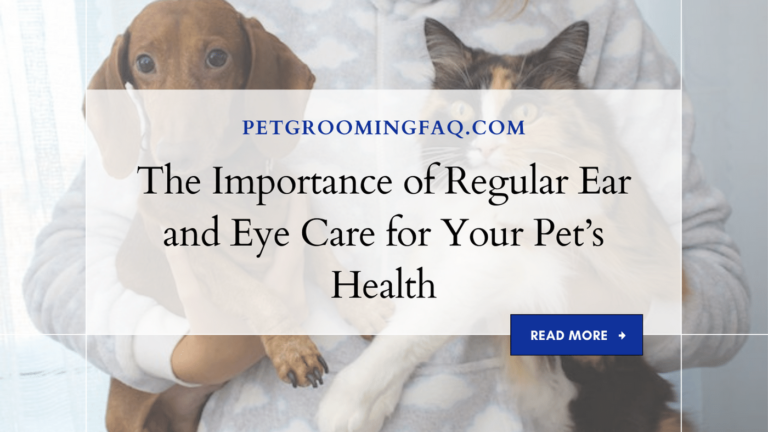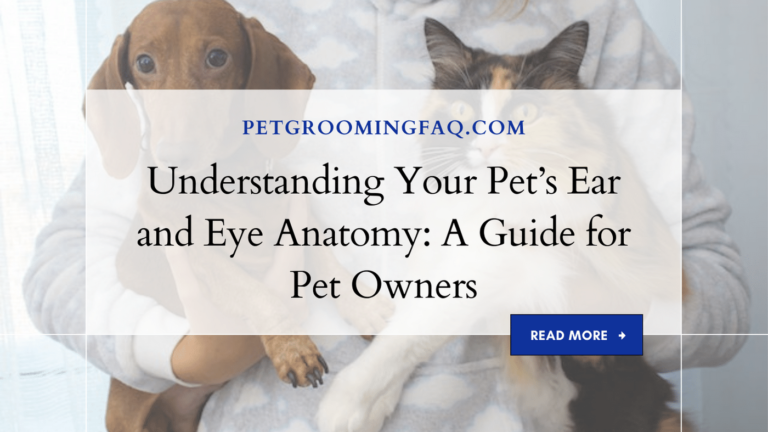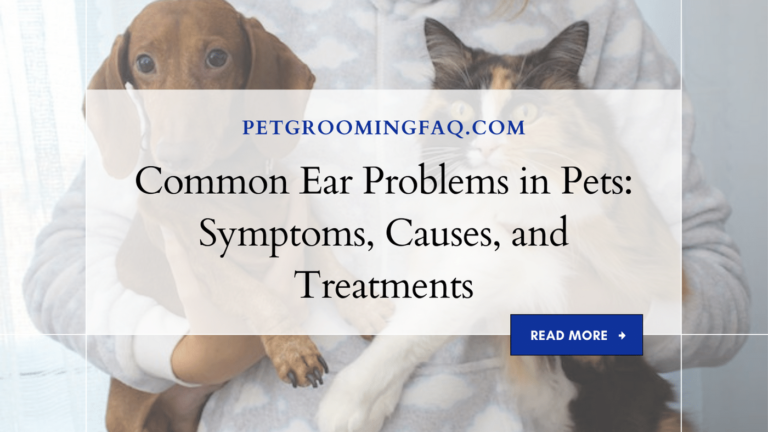Grooming Tips for Pets with Sensitive Ears: How to Avoid Irritation and Infection
Are you tired of seeing your furry friend scratch their ears constantly and suffer from ear infections? As pet parents, it’s our responsibility to take care of every aspect of our pets’ health, including their sensitive ears. But grooming pets with this issue can be a daunting task.
That’s why we’ve put together some essential tips to help you avoid irritation and infection in your pet’s ears while keeping them looking adorable! So loosen up those leashes and get ready for some grooming magic that will keep your furry friends happy, healthy, and comfortable at all times!
Causes of Sensitive Ears in Pets
There are several causes of sensitive ears in pets, including:
- Environmental allergies: Some animals are naturally more sensitive to environmental allergens, such as grass, dust mites or feathers. When these allergens are exposed to the pet’s delicate inner ear surface, they can cause inflammation and an increased risk of infection.
- Parasites: Pets can also be allergic to parasites such as fleas or ticks. These parasites can inhabit the pet’s ears and feed on its blood, leading to an inflammatory reaction and possible infection.
- Otitis media (middle-ear infections): One of the most common causes of ear infection in dogs and cats is Bordetella bronchiseptica (Bordetella), a bacterium that is spread through contact with respiratory secretions. This bacterium easily colonizes the moist environment inside the pet’s ears and can cause intense itching which often results in ear discharge and/or pain.
Tips to Prevent Sensitive Ears in Pets
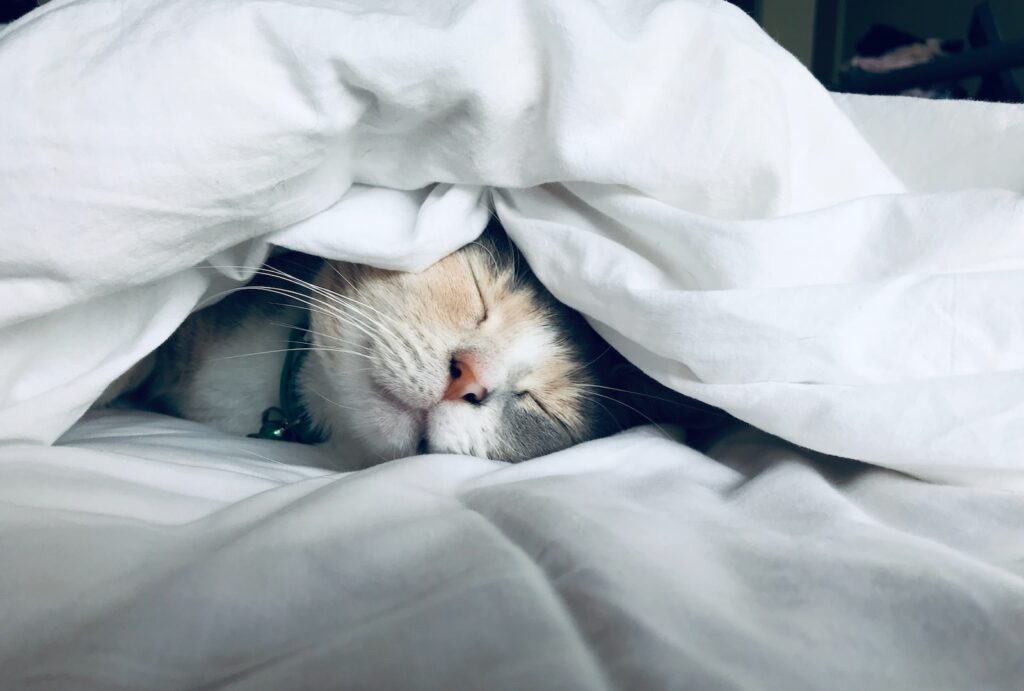
Keep your pet’s ears clean. Always keep your pet’s ears clean and free of wax and debris. Use a gentle, non-irritating ear cleaner specifically designed for pets, such as Otomedica Pet Ear Cleanser or Q-tips moistened with warm water and a little mild soap (such as Dove or Aveeno).
This will help keep the ears free of bacteria, which can cause inflammation and infection. If your pet Begins to exhibit symptoms such as redness, discharge, heat around the ears, or noise sensitivity in one or both ears, see your veterinarian for an examination. Treatment may include antibiotics if necessary.
Talk to your veterinarian about other potential prevention measures, such as keeping your pet’s environment clean and dry, providing appropriate exercise and stimulation, avoiding excessive noise, and preventing trauma to the ears.
Grooming Guidelines for Pets with Sensitive Ears
If you have a pet with sensitive ears, there are some grooming guidelines you should follow to avoid irritation and infection. Always use a gentle shampoo and water when bathing your pet. Use a mild soap if necessary. Avoid using harsh cleaners or products that may irritate the ear canal. Mild detergents can be used if needed, but prefer unscented shampoos and soaps.
If your pet develops dry skin around their ears, you may need to supplement their diet with fatty acids or omega 3s since these supplements can help to improve the overall condition of the skin. Keep your pets ears clean and dry by constantly providing them with a soft cloth to keep their ears clean and free from debris buildup.
For pet rabbits, it is important to keep their ears trimmed regularly. A quick and easy way to do this is to use a pair of scissors to cut the hair just behind the ear on the edge of the head. Be cautious not to cut into the skin. You can also use a pair of wire cutters to trim the hair shorter if desired.
How to Treat a Sensitive Ear in a Pet
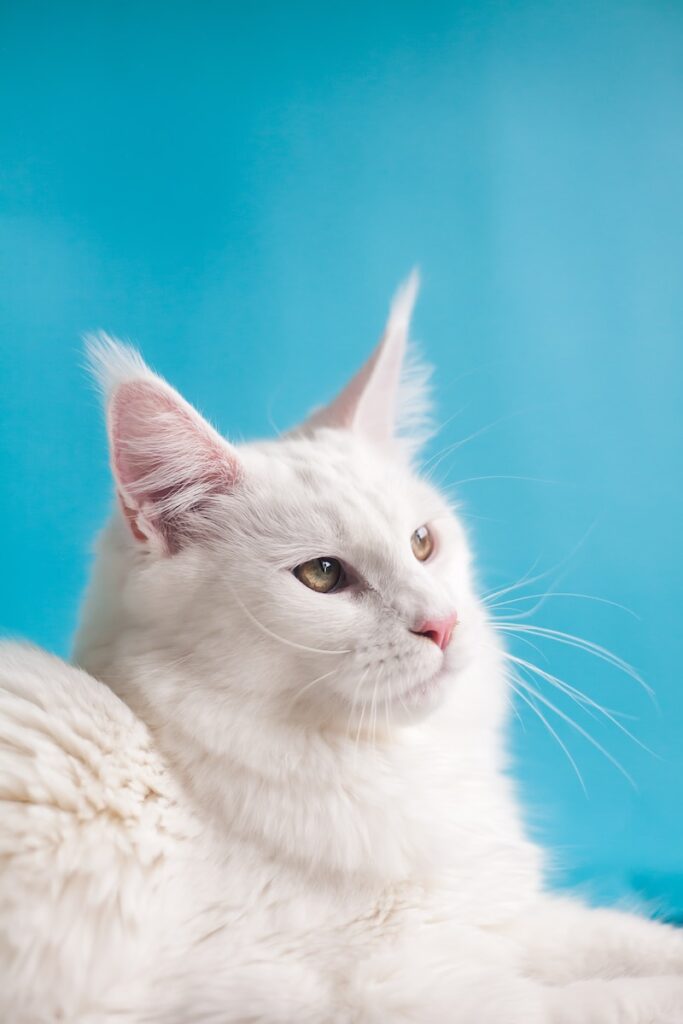
If your pet has a sensitive ear, there are a few things you can do to help them avoid irritation and infection. Follow these guidelines to keep your pet’s ears healthy and comfortable:
1) Keep your pet’s environment clean. Clean their ears regularly with warm water and a soft cloth. Avoid using harsh chemicals or soap, as they can irritate the skin and worsen any existing allergies or sensitivities.
2) Use caution when installing new earrings ornaments. Be sure to put them on slowly, letting your pet get used to them over time. If they become uncomfortable or start showing signs of irritation, take them off immediately.
3) Avoid exposing your pet to loud noises and crowds. This is especially important if they have difficulty hearing normally in both ears. Oftentimes, pets with sensitive ears will also react adversely to loud noises. Try to keep them as isolated from other noise as possible.
4) Examine your pet’s diet carefully for potential causes of sensitivity. Dry food can be tough for some pets’ skin to break down and eat properly, leading to dryness and crusting. Switching over to a canned or wet food diet may help alleviate this problem [source: Pet MD]. Additionally, certain additives – like wheat — may aggravate sensitive ears [sources: WebMD, Mayo Clinic].
If these tips don’t help, your pet may require additional medical attention. Speak to your veterinarian about any sensitivities your pet may have and what steps you should take to help them avoid irritation and infection.
How to Prevent Infection in Pets with Sensitive Ears
The tips in this article will help you to prevent your pet from becoming irritated or infected by sensitive ears.
First, make sure that your pet’s ears are thoroughly rinsed and clean. Use a gentle pet shampoo and avoid using any products that may cause irritation or inflammation. If you notice any redness, itchiness, or discharge from your pet’s ears, immediately stop using the shampoo and consult with your veterinarian.
Second, be sure to keep their ears dry after washing them. This will help to prevent irritation and infection.
Third, avoid exposing your pet to loud noises or items that could damage their ears. This includes exposure to wind chimes, lawnmowers, jet engines, fireworks displays, and motorcycles.
Make sure that you brush their teeth regularly and give them treats that are free of ingredients that could irritate their delicate ears.
Conclusion
Pets with sensitive ears can be a lot of work, but by following these grooming tips you will avoid irritation and infection. Groom your pet regularly to keep the fur clean and free from dirt, dead skin cells, bacteria, and other allergens. Check the coat for signs of dryness or excessive shedding.
When it comes to ear cleaning, use mild antibacterial soap or a diluted solution of apple cider vinegar and water. Rub the mixture gently inside each ear using circular motions for about 15 seconds. Repeat twice a week at least during warmer months. And finally, if your pet develops an ear infection, take him to the veterinarian as soon as possible





